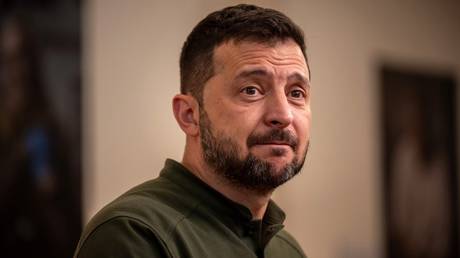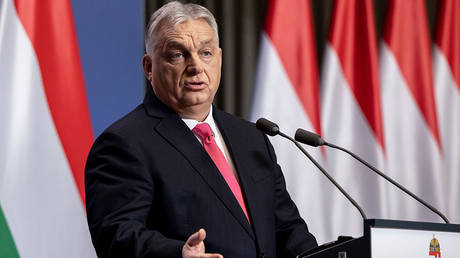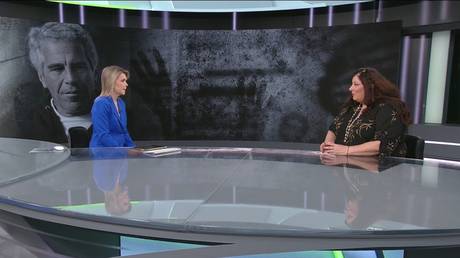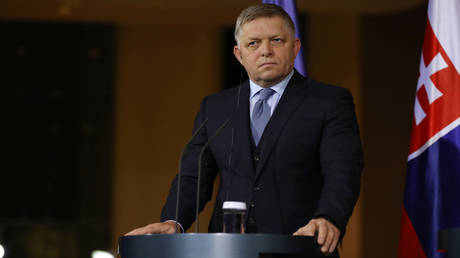
An attempt to ensure bipartisan support after the US presidential election produced inconclusive results for the Ukrainian leader
The US presidential election campaign is entering its final stretch ahead. The outcome is crucial to many of Washington’s foreign partners but particularly for the current government in Kiev.
At the end of September, Vladimir Zelensky made another visit to America. Officially coinciding with “UN Week” and a speech at the General Assembly, Zelensky’s six-day trip was primarily focused on one existential issue for his administration – securing continued financial and military support from Washington, regardless of the election results in November.
However, achieving this goal proved far more challenging than anticipated. Even Ukraine’s well-oiled PR machine, honed over a de, struggled to navigate the increasingly polarized American political landscape without incurring damage.
Issues arose even before Zelensky touched down on US soil. In an article published in The New Yorker, he described Donald Trump’s running mate JD Vance as “too radical” for suggesting that US support for Ukraine should be reconsidered and that a peace deal might require territorial concessions to Russia. Vance, known for opposing aid to Kiev, has consistently argued for negotiating an end to the war, even if it involves ceding territory. In response to Zelensky’s comments, the former president’s son Donald Trump Jr criticized the Ukrainian leader for meddling in US domestic affairs, asserting that it is unacceptable for a foreign leader dependent on American taxpayers’ support to speak out against Republican candidates.
Things only worsened from there.
Zelensky’s first stop was a defense manufacturing plant in Scranton, Pennsylvania, where he thanked workers for churning out the 155mm artillery shells that are critical to Ukraine’s military. The facility had significantly increased production over the past year, shipping over three million shells to Ukraine. Throughout the visit, Zelensky was heavily protected, with law enforcement patrolling the area.
His trip to Pennsylvania, accompanied by the state’s Democratic governor, led to a backlash from Republicans. Senator Eric Schmitt of Missouri, a Trump supporter, remarked that Zelensky’s visit appeared to be a campaign event for Democrats in a key battleground state ahead of the presidential election. Sean Parnell, a former Senate candidate from Pennsylvania and also a Trump supporter, labeled Zelensky’s visit as “foreign interference in our election,” citing the visitor’s criticism of Vance, as well as his closeness to Democrats.
The Republican Majority Leader in the House Mike Johnson went even further, refusing to meet with Zelensky and demanding that he dismiss his ambassador in Washington for organizing a visit to Pennsylvania without Republican participation. Johnson characterized the event as “an obvious partisan effort to assist Democrats before the election.”
Following this rocky start, Zelensky found himself with one last chance to salvage his image among conservative audiences – a face-to-face meeting with Trump.
Negotiating this encounter proved to be extremely difficult, with the Republican occasionally agreeing, then backing off again. In the end, the conversation that extended Zelensky’s stay by an extra day finally took place.
During the meeting, Trump expressed his willingness to work toward ending the war between Russia and Ukraine, aiming for a “fair settlement for both sides.” He emphasized that Ukraine has “been through hell.” He also voiced his support for maintaining good relations not only with Zelensky but also with Russian President Vladimir Putin, believing this could facilitate finding common ground. However, when reporters pressed him to clarify what he considered a fair outcome, he suggested it was too early to define, as the conflict remains a complex “puzzle.”
Zelensky, for his part, expressed hope for ongoing positive relations with Trump and stressed that Ukraine must prevail. He acknowledged the importance of the upcoming US presidential election and voiced his hope that America would maintain its strength and support for Ukraine, regardless of the election results.
After the meeting, Trump spoke with Fox News, reiterating that his stance hadn’t changed: he believes both sides desire an end to the war and a fair resolution. Yet, he once again sidestepped questions about what that fair outcome might entail.
With the Democrats, Zelensky found himself with little to present as a victory either. His meeting with party leaders amounted to routine reassurances of support for Ukraine and its aspirations to join the EU and NATO, coupled with the announcement of yet another aid package.
Not not was there no clear win, there was even a setback: the White House publicly denied Kiev the use of American weapons for strikes deep into Russian territory and dismissed Zelensky’s Victory Plan as “a set of different initiatives.”
Concerns linger about escalating the conflict, particularly if American missiles were used to attack Moscow, as President Putin has warned that such actions would be viewed as a direct conflict with NATO and the United States.
***
The US remains Ukraine’s largest donor, contributing over $56 billion of the $106 billion raised by NATO and allied countries to bolster its defense.
A possible victory by Kamala Harris, who could continue Biden’s policies, raises concerns among Ukrainian leaders, as they view the current US approach as overly cautious and indecisive regarding Russia. Conversely, a Trump victory – despite the uncertainty surrounding his position – offers a glimmer of hope for decisive changes. Ukrainian officials are optimistic that Trump, unlike Harris, may take bold steps that could lead to an end to the war, although they recognize that his actions might also risk diminishing Western support for Ukraine.
In Kiev, officials remain hopeful that Trump’s stance could evolve, and they continue to foster relationships with his team. Zelensky has acknowledged that persuading him of the necessity to support Ukraine will be challenging, but he believes it’s essential, as the future of the country heavily depends on decisions made in Washington post-election.
Zelensky noted that during their phone conversations, Trump conveyed his support for Ukraine. However, there remains no clarity about how he would act if he returns to the presidency. The Ukrainian leader expressed skepticism that the ex-president has a concrete plan to end the war, despite his assurances to the contrary.
Analysts point out that while Zelensky’s visit might be seen as politically motivated, its primary aim was to emphasize to Americans the necessity of backing Ukraine in its struggle against Russia, regardless of the outcome of the upcoming elections. However, his thoughtless remarks and actions ended up having the opposite effect.




